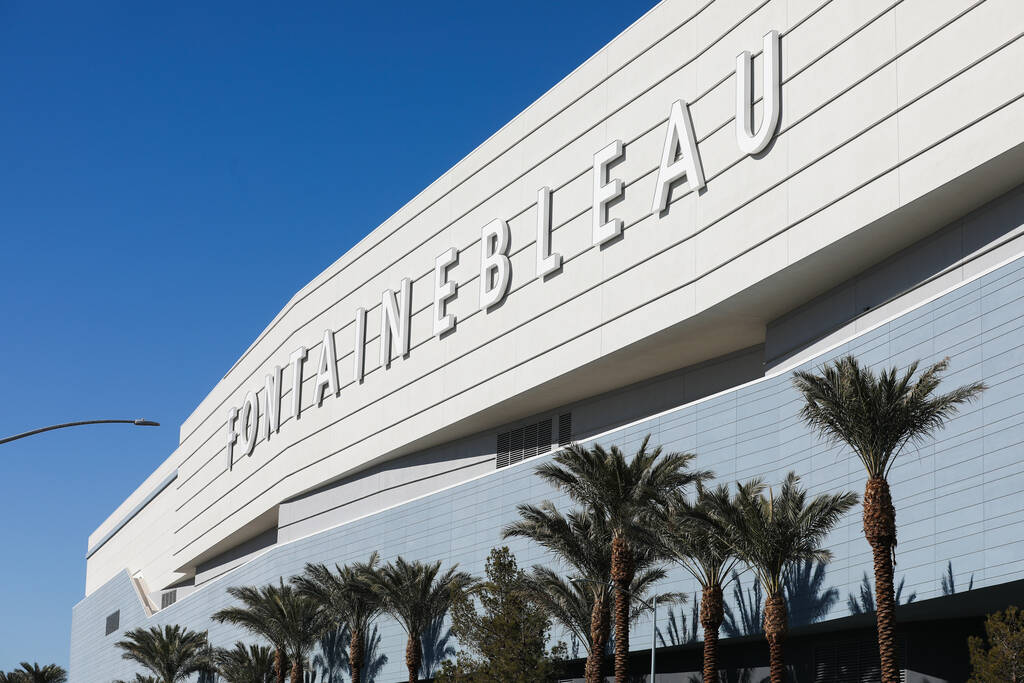Can you guess what the facades of Strip resorts have in common?

What do the Fontainebleau, Resorts World, Bellagio, Mandalay Bay, Wynn Las Vegas, Caesars Palace, Park MGM, Excalibur and many major Las Vegas Strip casinos have in common?
The exteriors of the megaresorts are fashioned using Dryvit, a synthetic stucco that once hardened can imitate the faux architectural flourishes Las Vegas is famous for, from simulated red bricks and shiny metal to the facade of an old Tuscan villa.
“I’ll bet 85 percent of the Strip is done with Dryvit,” said Kevin Norton, outside sales representative of North Las Vegas-based L&W Supply, local distributor of the building material.
Not only Strip resorts but the Circa hotel downtown used Dryvit for exterior cladding, as did several Las Vegas Valley hospitals, Norton said.
Dryvit is an acrylic material mixed with cement that comes in five-gallon buckets that workers usually apply using a hawk and a trowel like smoothing over fresh-poured cement, he said.
The stuff, available in dozens of colors, is smeared either directly on the sides of a building on plywood or other substrate as a final finish or spread on large mesh-screen and foam covered pre-fabricated panels.
The panels, from 10 feet to one story in size, are lifted up using a crane, then bolted and cemented to the main structure.
Developers like to use it because it reduces construction costs and completion time, provides an extra layer of insulation, energy efficiency, water drainage and lightens the structure so that heavy beams are not required, as say in a building made of real bricks, Norton said.
To mimic a brick building look, Dryvit paste is spread over a template in a factory that when dried appear as rows of clay bricks and mortar.
“It saves about one-third the cost of bricks,” he said. “It can create whatever they want. It’s just how the world has gone.”
The options for Dryvit finishes on the surface of a building can be, in the case of the area beside the porte cochere at Resorts World, panels that look like real metal, thanks to its “ReflectIt Smooth” paint, Norton said.
“It’s like painting a car with a high metallic finish on it,” Norton said.
There are other finishes such as the light beige colored “Tuscan Glaze” to “simulate century old plaster” look and ones that make a building appear to be made out of wood grain, granite, limestone or travertine blocks, according to Dryvit’s website.
“Finally, by easily adding decorative shapes, the architect can recreate classic architecture,” as stated on the website.
Dryvit, or what is known in the industry as an exterior insulation and finish system, was created in 1969. It is manufactured by Dryvit Systems, Inc. in Rhode Island and “used successfully on more than 450,000 commercial and residential buildings,” according to the website.
Contact Jeff Burbank at jburbank@reviewjournal.com or 702-383-0382. Follow him @JeffBurbank2 on X.